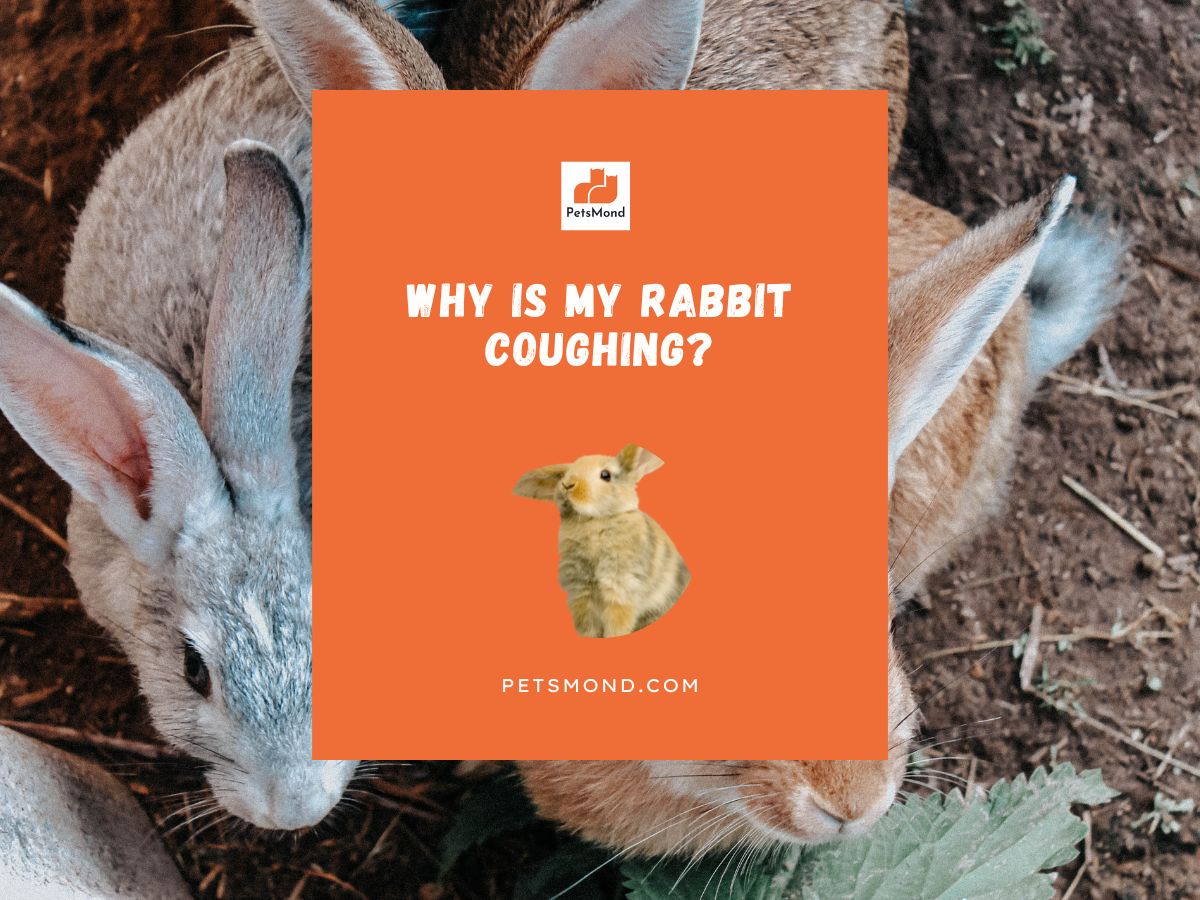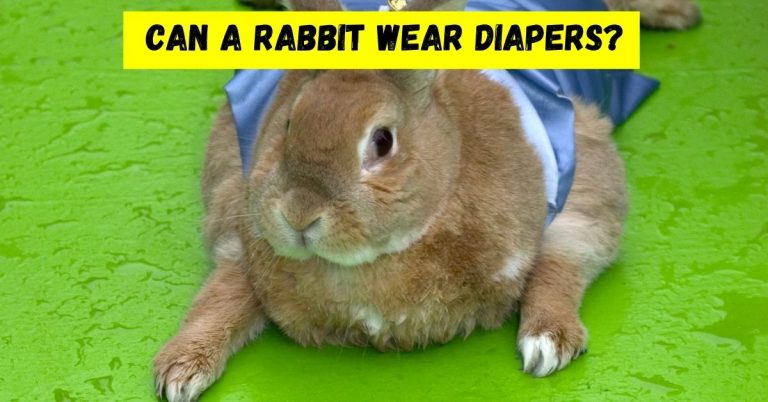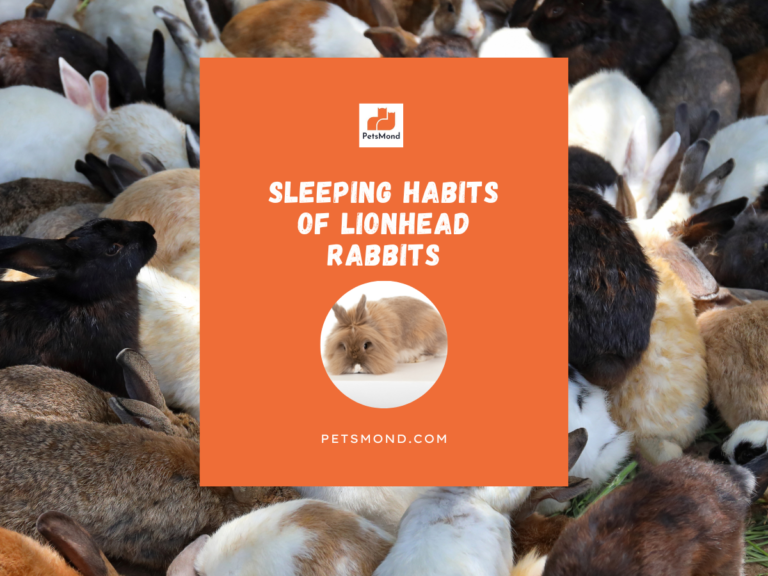8 Reasons A Rabbit Is Coughing (And Expert Home Remedies)
Rabbits are vocal for various reasons. When my rabbit is hungry, she vocalizes differently, but when she is pregnant, she is expecting utmost privacy. That’s when her vocalization changed. But, sometimes, that could also mean something is wrong with the rabbit’s health. One of the commonly encountered events that’s left unattended is coughing. A rabbit might cough, but you may assume it to be a regular vocalization.
If you’ve noticed that slight coughing noise from your rabbit, wonderful! You’re paying close attention to the little one and that’s all the bunny needs from you. So, why is your rabbit coughing?
Rabbits cough due to one or more of these reasons: respiratory infections, allergies, dental problems, heart disease, foreign objects, lung parasites, irritants, and tumors. When a cough combines with a sneeze, it could mean a problem with the environment. If it’s limited to cough, it’s better to check for comorbidities.
You may want to know more about this phenomenon if you’re raising one or more rabbits at home. In my experience of over a decade with rabbits, I’ve observed that coughing is critical and needs quick attention. So, head right on to this article and find out more about it.
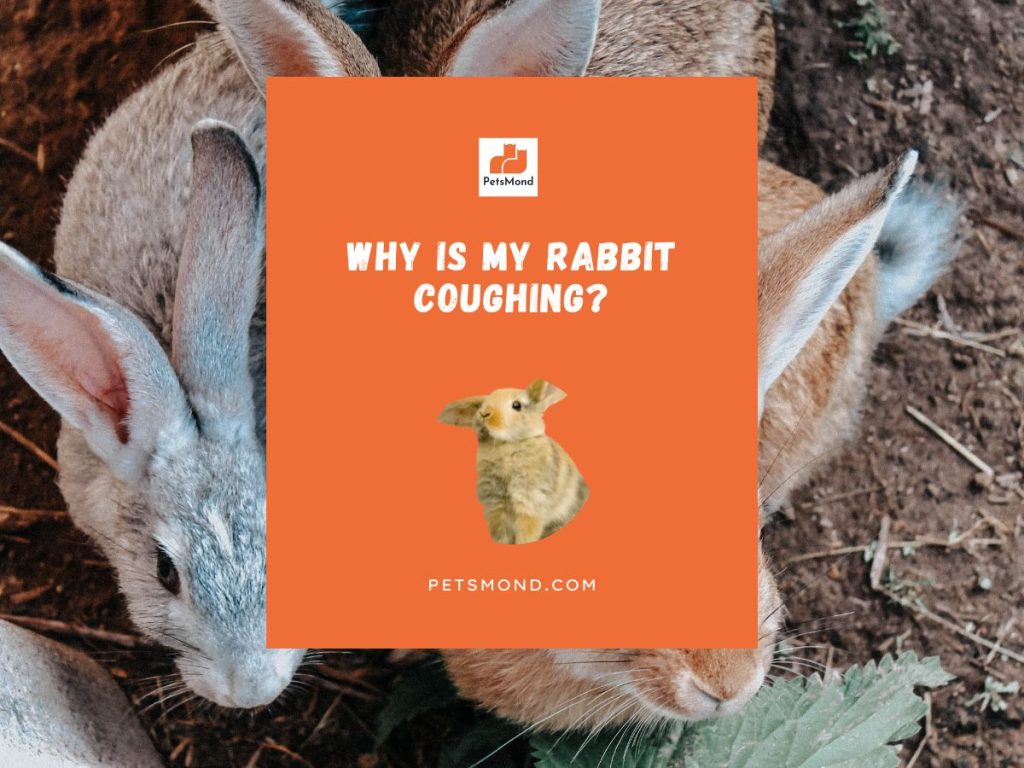
Common Reasons of Rabbit Coughing
Sneezing, coughing, wheezing, snuffling – too much, right? These are some common sounds of alert produced by a rabbit.
According to Bishops Stortford Vets, coughing is a rare occurrence in rabbits. However, it can get serious at times when left unattended. Several rabbit owners openly shared in a public forum how an early medical intervention saved the rabbit.
When the nasal airway of a rabbit is interrupted by a foreign object, the event of coughing occurs, according to this research study. Of course, it’s a mere reflex action to get rid of a cough. However, there are numerous reasons why your rabbit may be coughing.
Here you go!
- Respiratory Infections: Respiratory infections are a common cause of coughing in rabbits. These infections can be caused by bacteria, viruses, or fungi. Symptoms may include coughing, sneezing, nasal discharge, and difficulty breathing. Veterinary Clinics claim that the rabbit’s respiratory system is highly fragile and can’t withstand the onset of chronic infections.
- Allergies: Rabbits can develop allergies to various environmental factors, such as dust, pollen, or mold. Allergies can cause coughing, sneezing, and runny eyes. The cough reflex strength is pretty high in rabbits and you should always keep a check on the environment.
- Dental Problems: Dental issues can cause your rabbit to cough. If your rabbit’s teeth are misaligned or overgrown, it can cause irritation to the throat and cause coughing. Honestly, this is an ongoing condition in rabbits and needs a regular check on the length/growth of teeth.
- Heart Disease: Heart disease can cause coughing in rabbits, especially if the heart is enlarged and pressing on the trachea.
- Foreign Objects: If your rabbit has ingested a foreign object, such as a piece of hay or a small toy, it can cause coughing and choking, as shared in a public forum.
- Lung Parasites: Lung parasites, such as lungworms, can cause coughing in rabbits. These parasites can be contracted from contaminated food or water. Make it a routine to change and clean food and water bowls regularly.
- Irritants: Irritants, such as cigarette smoke or cleaning products, can cause coughing in rabbits. It is important to keep your rabbit’s living environment clean and free of any potential irritants. Can you believe that as a rabbit grows, they become more vulnerable to irritants and acquire respiratory diseases?
- Tumors: Tumors in the respiratory system can cause coughing in rabbits. If you notice your rabbit coughing persistently, it is important to take them to the vet for a check-up.
A lot of people in the past (including me) get confused about the meaning of a sound produced by rabbits.
To give you a better understanding on the coughing sound, check the video below:
Symptoms Accompanying Rabbit Coughing
When you talk about the sound of a rabbit, there is a long list. However, one thing to keep in mind is coughing is a disease if it persists for a long time. In fact, your rabbit should most likely have other conditions like fever/diarrhea during this time.
So, how do you confirm if your rabbit is coughing?
Here are some symptoms to look out for:
- Sneezing: If your rabbit is sneezing along with coughing, it may indicate an upper respiratory infection caused by bacteria or viruses.
- Nasal discharge: A runny nose or discharge from the nose can also be a sign of respiratory infection in rabbits.
- Eye discharge: Watery or pus-filled discharge from the eyes can also accompany respiratory infections in rabbits.
- Lethargy: If your rabbit is coughing and seems lethargic or less active than usual, it may indicate an underlying illness or infection.
- Loss of appetite: If your rabbit is coughing and not eating or drinking as much as usual, it may indicate a more serious illness or infection. Keep an eye out for 2 days to confirm if this is the cause. Sometimes, it can be just due to a change in weather.
- Difficulty breathing: If your rabbit is coughing and having trouble breathing, it may be a sign of a more severe respiratory infection or even pneumonia. A research study states a high incidence rate of pneumonia when a rabbit is at the weaning state.
- Weight loss: If your rabbit is coughing and losing weight, it may be a sign of a more serious underlying health issue that requires veterinary attention.
- Fever: If your rabbit is coughing and has a fever, it is important to seek veterinary care immediately as it may indicate a severe respiratory infection or other illness.
Anything concerned with the respiratory system of a rabbit needs quick assistance.
Look at the lungs schema of a rabbit and you’ll understand why they’re fragile!
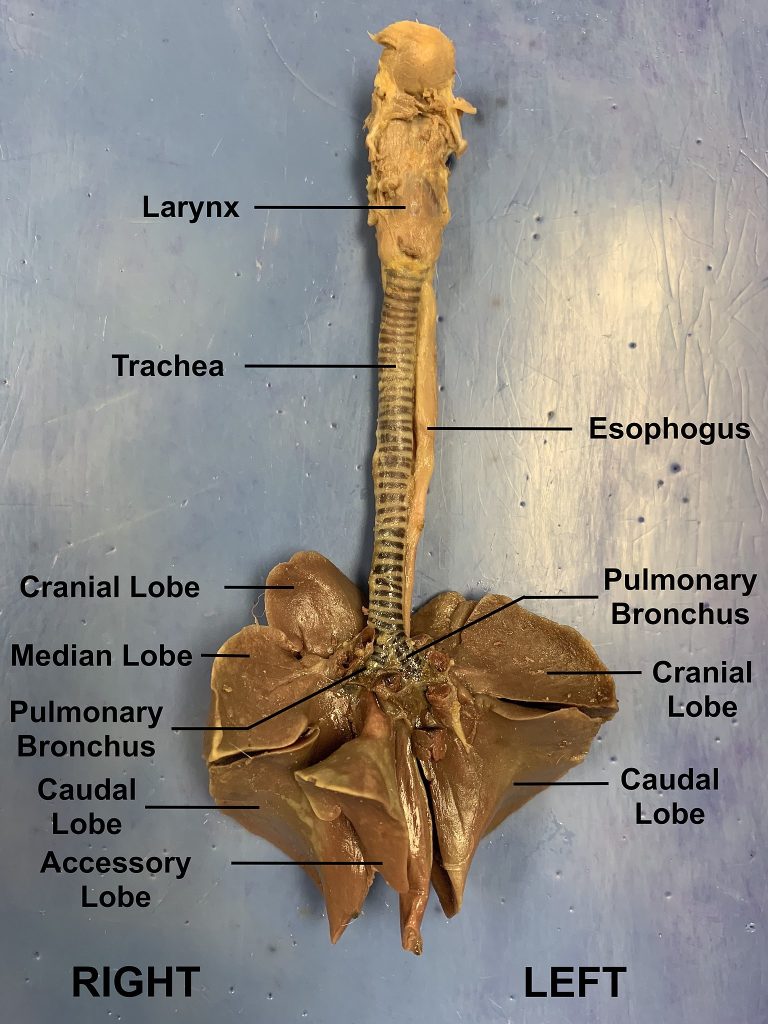
Diagnosing a Coughing Rabbit
Coughing can be a sign of a serious health issue, so you’ll want to diagnose the underlying problem as soon as possible. Have you been wondering if you can do it at home?
Well, partly yes! If your rabbit’s cough has just started, it’s easier to find out the trigger point. However, if it’s persisting or has advanced to the next level, diagnosis can only be done by a rabbit-savvy vet.
Caution: Don’t take the risk of assessing at home and making your own decision.
Here are some steps to help you diagnose why your rabbit is coughing:
Step 1: Observe Your Rabbit
The first step is to observe your rabbit closely. Watch for any other symptoms, such as sneezing, runny nose, or discharge from the eyes. Look for any changes in appetite or behavior. Take note of when your rabbit coughs and what seems to trigger the coughing.
Step 2: Check Your Rabbit’s Environment
The next step is to check your rabbit’s environment. Make sure the air quality is good and that your rabbit is not exposed to any irritants, such as cigarette smoke or cleaning chemicals. Check for any mold or mildew in your rabbit’s living area.
In a public forum, a rabbit owner has highlighted how a change in air quality impacted the health of the rabbit.
Tip: Ensure it’s a ventilated space!
Step 3: Check Your Rabbit’s Diet
Your rabbit’s diet can also be a factor in coughing. Make sure your rabbit is eating a healthy diet that includes plenty of hay and fresh vegetables. Avoid giving your rabbit any foods that could be causing an allergic reaction.
Check out this list to ensure proper feeding: Safe & unsafe fruits for rabbits
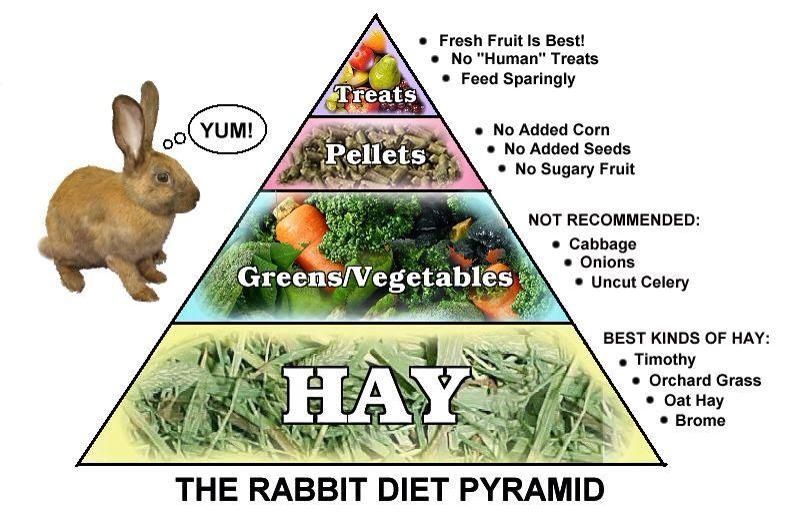
Step 4: Check for Parasites
Parasites can also cause coughing in rabbits. Check your rabbit for fleas, ticks, or mites. Make sure your rabbit is up-to-date on all parasite preventatives.
Tip: I’d suggest keeping a brush to clean the fur handy! This is a way to keep their fur free from tangles, parasites, and any potential surprises.
Step 5: Visit Your Veterinarian
If you’ve tried the above steps and your rabbit is still coughing, it’s time to visit your veterinarian. Your vet will be able to perform a thorough exam and determine the underlying cause of your rabbit’s coughing. They may perform diagnostic tests, such as blood work or x-rays.
Remember, coughing can be a sign of a serious health issue in rabbits. If you notice your rabbit coughing, don’t wait to seek veterinary care. The sooner you diagnose the underlying problem, the sooner you can start treatment and help your rabbit feel better.
Preventing Cough in Rabbits
Did you just wonder if there’s a way to prevent coughing in rabbits? What if I tell you that a few simple tweaks can improve the health of little ones?
In my experience, I’ve observed that tiny tweaks such as repeated interactions with them, provision of enrichment toys, and availability of high-quality food upgraded their health conditions.
What can you do?
Here are some preventive measures you can take to avoid rabbit coughing:
- Clean Living Environment: Ensure that your rabbit’s living environment is clean and free from dust, mold, and other allergens. Regularly clean their cage or enclosure, litter box, and bedding to keep it fresh and free from dirt and dust. You may also consider using air purifiers or dehumidifiers to maintain air quality.
- Proper Diet: Feeding your rabbit a proper diet is essential to prevent coughing. Provide them with fresh hay, vegetables, and fruits that are high in fiber and nutrients. Avoid feeding them foods that are high in sugar, fat, or processed ingredients, as they can cause digestive and respiratory problems.
- Regular Exercise: Encourage your rabbit to exercise regularly to keep their lungs and respiratory system healthy. Provide them with enough space to move around and play, and engage them in activities such as hopping, jumping, and running. Exercise also helps to reduce stress and anxiety, which can contribute to coughing.
- Avoid Smoking: Smoking around your rabbit can cause respiratory problems and increase the risk of coughing. Avoid smoking indoors or near your rabbit, and ensure that their living environment is smoke-free.
- Regular Check-ups: Regular veterinary check-ups are essential to prevent and detect respiratory problems in rabbits. Schedule regular visits with your veterinarian to ensure that your rabbit is healthy and free from coughing or other respiratory problems.
A healthy diet = A happy rabbit!
Rabbit isn’t eating? Check this video to fix it:
By following these preventive measures, you can help to ensure that your rabbit remains healthy and free from coughing.
Frequently Asked Questions
What are some home remedies for treating snuffles in rabbits?
If your rabbit is experiencing snuffles, you can increase their fluid intake by providing fresh water and wet greens, and you can also use a humidifier to help ease their breathing. Additionally, you can use saline nasal drops to help clear their nasal passages (but only under the vet’s guidance).
Why does my rabbit make snuffling sounds?
Snuffling sounds in rabbits can be caused by a variety of factors, including respiratory infections, allergies, and dental problems. If your rabbit is making snuffling sounds, it is important to check if there are allergens around. Otherwise, you can take them to a veterinarian for a proper diagnosis and treatment.
Related Articles

